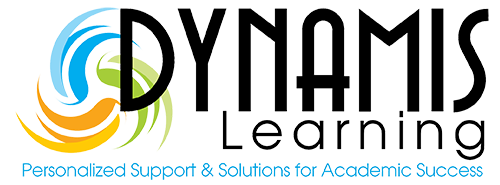“Write it down today. Put it away. Make sense of it tomorrow.”
Courtney Summers
Is cursive writing being taught in your child’s school? Have you wondered how your child’s keyboard use will affect them in the future? How will it impact their penmanship and ability to write well? As education trends towards keyboarding and away from handwriting, time will tell what the repercussions will be.
 Minds in Motion authors, Alexandra Beer and Candace Meyer, state that cursive writing is foundational for cognitive development in school children. Learning cursive writing stimulates the early stages of brain development and helps students perform a myriad of everyday tasks. As children learn to write in cursive, they begin to develop fine motor skills which the brain needs to make sense of the world.
Minds in Motion authors, Alexandra Beer and Candace Meyer, state that cursive writing is foundational for cognitive development in school children. Learning cursive writing stimulates the early stages of brain development and helps students perform a myriad of everyday tasks. As children learn to write in cursive, they begin to develop fine motor skills which the brain needs to make sense of the world.
Cursive writing creates neural pathways required to stimulate brain activity for language fluency and vision-motor control needed for cognitive development, as well as for reading, sports, and socialization. This is a result of the movement of the fingers forming letters which stimulates the brain in areas that control thinking and memory; it improves neural connections, according to Did You Know?
Students who learn cursive writing do very well in reading words and in spelling than those who only learn to write in manuscript. This is because writing in cursive reinforces flow of thought. A possible explanation for this is that the kinesthetic feedback from cursive writing reinforces processing the entire word rather than individual letters. CursiveLogic illustrates this concept, citing the research of Steve Graham and Tanya Santangelo who contend that “teaching handwriting is strongly correlated to improvement in the quality of writing (not just the legibility of handwriting, but the quality of the composition).” As students develop their cursive writing skills, they improve as writers.
 The neurological benefits of writing by hand are compounded with cursive writing, and this is especially beneficial for students with disorders like dyslexia and dysgraphia. In a PBS interview, language specialist Marilyn Zecher states that students with dyslexia have difficulty learning to read because their brain associates sounds and letter combinations inefficiently, but cursive can help them with the decoding process by integrating hand-eye coordination, fine motor skills, and other brain and memory functions.
The neurological benefits of writing by hand are compounded with cursive writing, and this is especially beneficial for students with disorders like dyslexia and dysgraphia. In a PBS interview, language specialist Marilyn Zecher states that students with dyslexia have difficulty learning to read because their brain associates sounds and letter combinations inefficiently, but cursive can help them with the decoding process by integrating hand-eye coordination, fine motor skills, and other brain and memory functions.
I remember one of my students who had dyslexia and dysgraphia struggled with differentiating b and d, however, after she learned to write in cursive, she was able to recognize b and d with confidence whenever she encountered it in future text.
 Zecher goes on to say that cursive writing not only helps students with learning disorders, but it also supports Common Core goals. It will “facilitate deeper and more critical thinking” and it helps kids “assimilate the content and make notes and remember it.” It also gives the students an edge in the workforce. In fact, one of the tutors at Dynamis Learning Academy worked at a college writing center and was asked to help students who were doing their medical practicums. The tutor taught them cursive writing because they could not read the handwritten items that were being presented to them at work. In fact, those students who took the initiative to learn cursive writing were more apt to be viewed as leaders and be promoted in their jobs.
Zecher goes on to say that cursive writing not only helps students with learning disorders, but it also supports Common Core goals. It will “facilitate deeper and more critical thinking” and it helps kids “assimilate the content and make notes and remember it.” It also gives the students an edge in the workforce. In fact, one of the tutors at Dynamis Learning Academy worked at a college writing center and was asked to help students who were doing their medical practicums. The tutor taught them cursive writing because they could not read the handwritten items that were being presented to them at work. In fact, those students who took the initiative to learn cursive writing were more apt to be viewed as leaders and be promoted in their jobs.
States like Tennessee, North Carolina, Carolina, Idaho, Indiana, and Massachusetts, and Kansas have taken steps to mandate cursive writing teaching in their schools. What we have found is that students in the remaining states will have to seek private lessons for their children to learn how to write in cursive. The skill of cursive writing is very much-needed and in demand, and it is the conduit for helping students process their ideas and become better thinkers and writers.
 We, at Dynamis Learning Academy, are here to help your children with their academic needs including helping them learn to write in cursive and improve their handwriting. Contact owner Helen Panos at helen@dynamislearningacademy.com or at 770-282-9931 to schedule a free consultation and help your child reach his or her full potential.
We, at Dynamis Learning Academy, are here to help your children with their academic needs including helping them learn to write in cursive and improve their handwriting. Contact owner Helen Panos at helen@dynamislearningacademy.com or at 770-282-9931 to schedule a free consultation and help your child reach his or her full potential.
Helen is an expert educator with over 25 years of years of experience. She believes in the importance of helping children reach their potential and become well-rounded, intelligent citizens with a positive influence and impact on society. She assists parents in accessing the best skills, strategies, tools, and resources to help children be successful and ultimately excel in the world.
